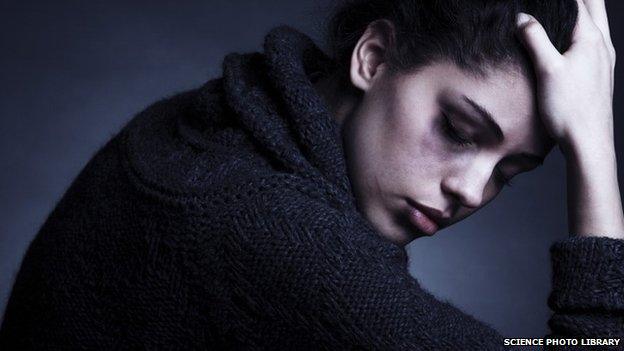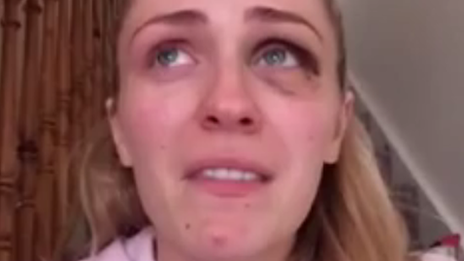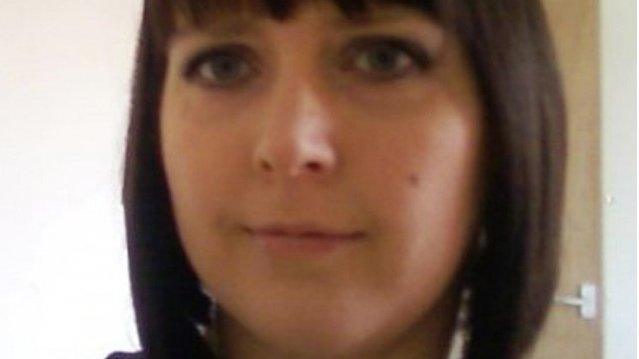Families 'unsure how to help domestic abuse victims'
- Published

Most people do not feel able to help when they know someone is suffering from domestic abuse, research suggests.
The findings by Citizens Advice show 84% of people surveyed said they might feel uneasy telling anyone about their concerns.
The lack of confidence is despite the fact almost one in three (31%) of the 2,063 British adults questioned by the researchers knew a victim.
The government has announced a review of services currently available.
Reasons people cited for not reporting domestic abuse included fears they could make the situation worse, reluctance to speak up because they were not "absolutely sure" or having a lack of knowledge about the implications for the victim.
'Too afraid'
Gillian Guy, chief executive of Citizens Advice, said: "When someone manipulates their partner's emotions, controls their finances and even physically assaults them, victims may feel too afraid or defeated to reach out themselves.
"Friends and family are often the only ones who might suspect someone is suffering behind closed doors."
The charity has now called for a green cross code style of guidance, external to be issued to set out steps for people to help victims.
Last month, the government announced in the Budget that it would review the services that are currently available for domestic abuse and bring in a new law to prosecute offenders.
Karen Bradley, minister for preventing abuse and exploitation, said: "I am grateful to Citizens Advice for raising awareness of the challenges in supporting a friend or family member who is being abused.
"Domestic abuse is not just about physical violence. That is why we are introducing a new offence to capture coercive and controlling behaviour, which is harder to recognise but has an equally devastating impact on victims.
"[The law change] will drive a culture change and send a clear message to perpetrators, victims and society as a whole that all domestic abuse is unacceptable."
- Published12 July 2015

- Published5 June 2015

- Published8 March 2015

- Published26 January 2015
